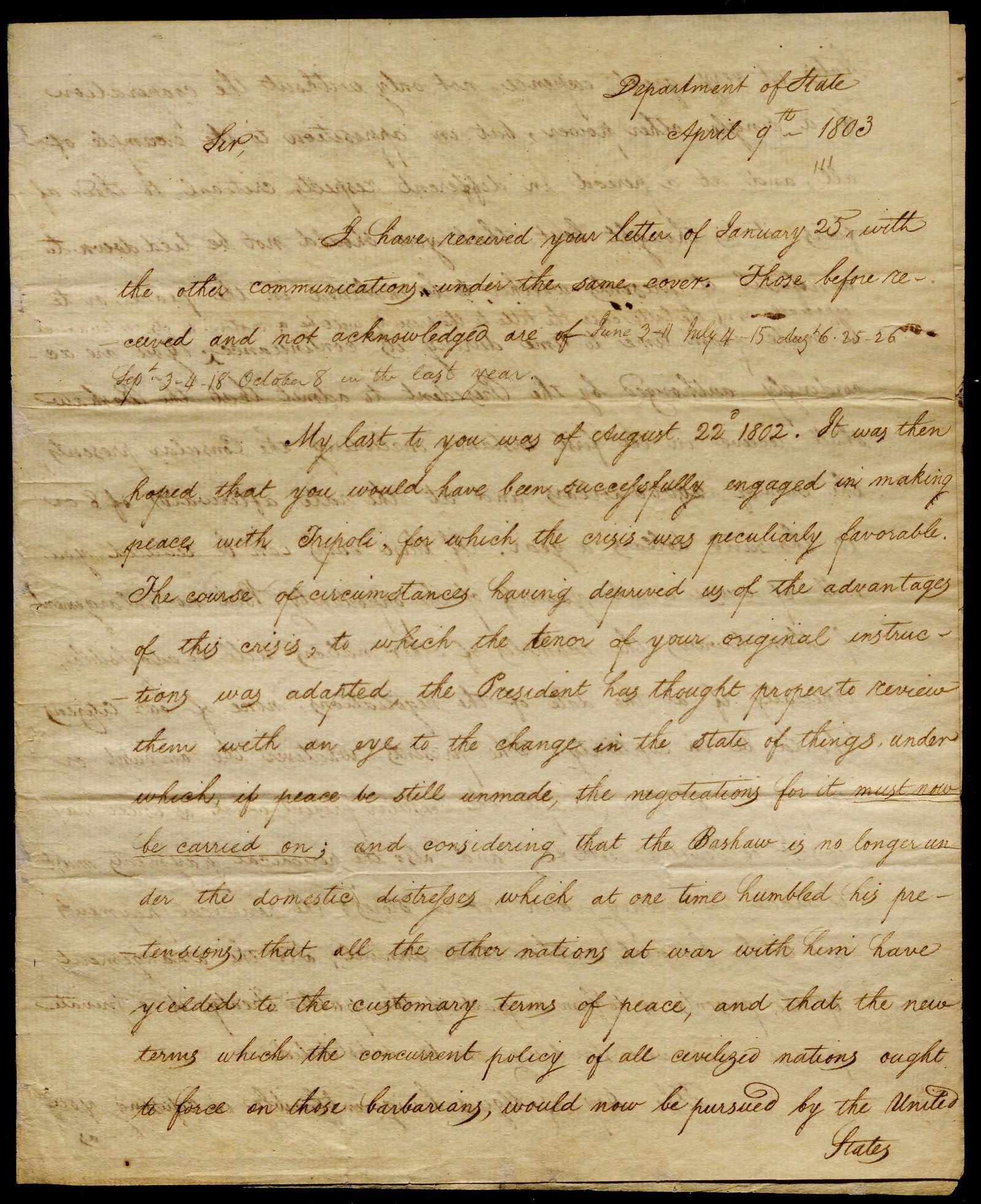
A larger version of this object is available to teachers and students for free. Others can subscribe for $25/year.
Larger images are also available to schools and libraries via subscription to American History, 1493-1943. Check to see if your school or library already has a subscription or click here for more information.
- GLC#
- GLC00496.051-View header record
- Type
- Letters
- Date
- April 9, 1803
- Author/Creator
- Madison, James, 1751-1836
- Title
- to James Leander Cathcart
- Place Written
- Department of State
- Pagination
- 4 p. : Height: 25 cm, Width: 20 cm
- Language
- English
- Primary time period
- The New Nation, 1783-1815
- Sub-Era
- The Age of Jefferson & Madison
The letter discusses that peace had just been made with Algiers. Also, mentions commission as consul to Tunis.
Citation Guidelines for Online Resources
- Copyright Notice
- The copyright law of the United States (title 17, United States Code) governs the making of photocopies or other reproductions of copyrighted material. Under certain conditions specified in the law, libraries and archives are authorized to furnish a photocopy or other reproduction. One of these specific conditions is that the photocopy or reproduction is not to be “used for any purpose other than private study, scholarship, or research.” If a user makes a request for, or later uses, a photocopy or reproduction for purposes in excess of “fair use,” that user may be liable for copyright infringement. This institution reserves the right to refuse to accept a copying order if, in its judgment, fulfillment of the order would involve violation of copyright law.